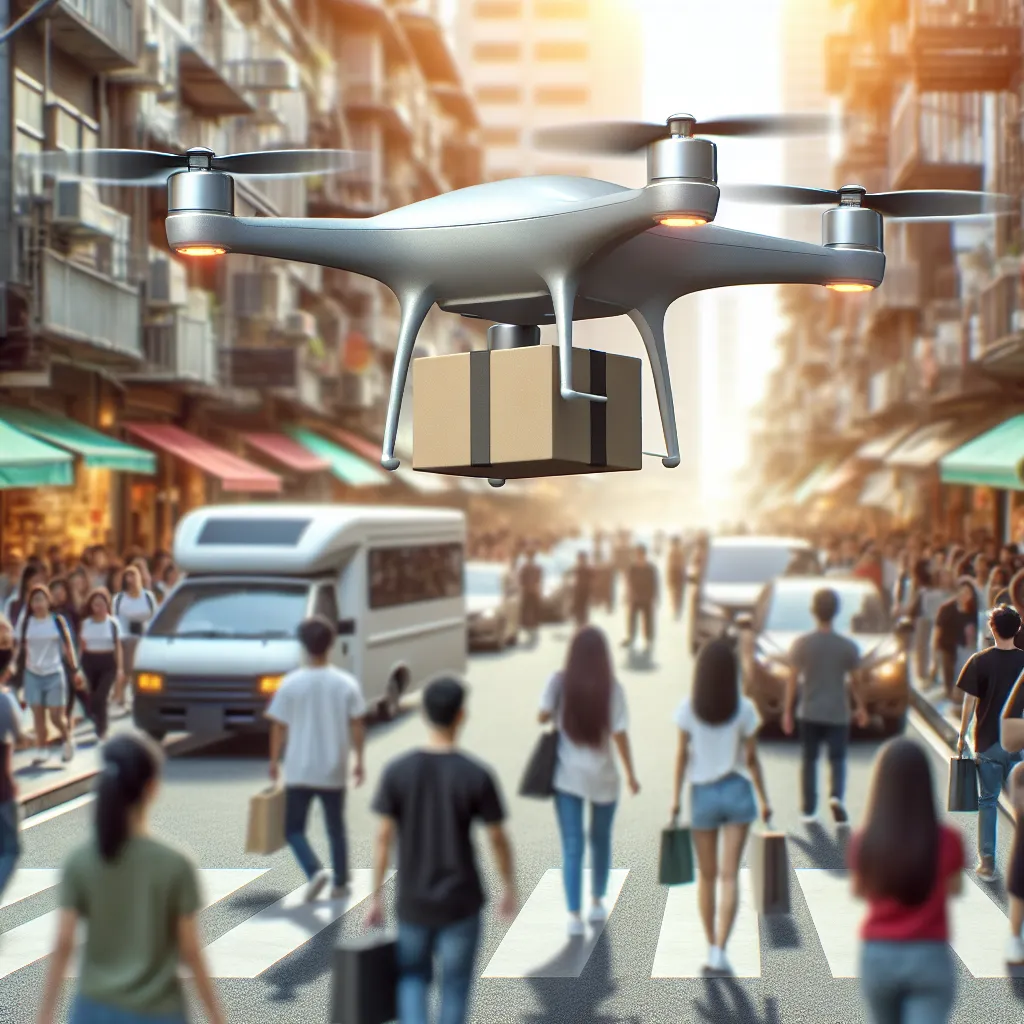Environmental Impact of Last-Mile Delivery Services
One of the key challenges facing last-mile delivery services is the environmental impact of their operations. With the rapid growth of e-commerce and the increasing demand for quick deliveries, the volume of delivery vehicles on the roads has surged, leading to higher carbon emissions and traffic congestion. This has raised concerns about the sustainability of last-mile delivery services and their contribution to environmental degradation.
Last-mile delivery services often rely on traditional fossil fuel-powered vehicles, which emit greenhouse gases and other pollutants. The inefficiency of delivery routes and the practice of single-package deliveries further exacerbate the environmental impact. Additionally, the packaging materials used in these deliveries, such as plastic packaging and excessive cardboard boxes, contribute to waste generation and environmental pollution.
To address these challenges, last-mile delivery services are exploring sustainable alternatives, such as electric and hybrid vehicles, cargo bikes, and drones. Electric vehicles offer a promising solution by reducing emissions, especially when powered by renewable energy sources. Cargo bikes are well-suited for urban deliveries, reducing traffic congestion and emissions while also promoting a healthier and more active mode of transportation. Drones, though still in the early stages of development, have the potential to reduce delivery times and minimize the environmental impact through efficient aerial transportation.
Furthermore, the implementation of route optimization algorithms and the consolidation of deliveries can help reduce unnecessary mileage and fuel consumption. This approach not only lowers emissions but also decreases operational costs for delivery services. In addition, promoting sustainable packaging practices, such as eco-friendly packaging materials and minimalistic designs, can significantly reduce waste generation and environmental harm.
In conclusion, the environmental impact of last-mile delivery services poses a significant sustainability challenge. However, with the adoption of innovative technologies, alternative transportation modes, and sustainable practices, the industry can mitigate its environmental footprint and move towards a more environmentally friendly and sustainable model of last-mile delivery.
Innovation and Efficiency in Sustainable Last-Mile Logistics
When it comes to last-mile delivery services, the push for sustainability is driving innovation and efficiency in logistics. With the rise of e-commerce and the increasing demand for fast and convenient delivery, companies are facing challenges to minimize their environmental impact while meeting customer expectations. Sustainable last-mile logistics is essential for reducing carbon emissions, optimizing delivery routes, and minimizing packaging waste.
One of the key aspects of sustainable last-mile logistics is the integration of innovative technologies. Utilizing route optimization software, electric vehicles, and alternative delivery methods such as drones and autonomous vehicles can significantly reduce the carbon footprint of delivery services. These technological advancements not only improve efficiency but also contribute to environmental conservation, making last-mile logistics more sustainable.
In addition to technological innovations, improving the efficiency of last-mile delivery services is crucial for sustainability. This involves streamlining processes, reducing empty miles, and implementing effective vehicle load management. By maximizing the use of resources and minimizing unnecessary delays, companies can lower their operational costs and environmental impact, ultimately achieving greater sustainability in their last-mile logistics.
Furthermore, collaboration and partnerships within the industry can drive sustainable innovation in last-mile delivery. Sharing resources, infrastructure, and transportation networks can lead to optimized delivery routes and reduced congestion. Through joint efforts, companies can collectively work towards sustainable solutions, such as shared-use cargo bikes and micro-fulfillment centers, to address the challenges of last-mile logistics sustainability.
In conclusion, the integration of innovative technologies and the pursuit of efficiency are paramount in achieving sustainability in last-mile delivery services. As the industry continues to evolve, embracing new advancements and sustainable practices will be instrumental in overcoming the challenges and making last-mile logistics more environmentally friendly and efficient.
Social Responsibility in Last-Mile Delivery Operations
One of the key sustainability challenges in last-mile delivery services is the aspect of social responsibility in last-mile delivery operations. With the rising demand for fast and efficient delivery services, there is a growing concern about the impact of these operations on the well-being of the society, particularly the workers involved and the communities they serve.
Social responsibility in last-mile delivery operations encompasses various aspects such as the welfare and working conditions of delivery personnel, fair wages, and the minimization of negative social externalities. Providing a safe and supportive work environment for delivery workers is essential to ensure their well-being and job satisfaction. Additionally, implementing fair wage policies and benefits can contribute to the overall social welfare of the workers, addressing the issue of income inequality and financial stability.
Furthermore, last-mile delivery services need to consider the social impact on the communities where they operate. This includes aspects such as minimizing noise and air pollution, reducing traffic congestion, and ensuring that delivery operations do not disrupt the daily lives of residents. Engaging in community outreach programs and initiatives can also foster positive relationships with the local population and contribute to a more sustainable and socially responsible approach to last-mile delivery.
In conclusion, addressing the social responsibility aspect of last-mile delivery operations is crucial for achieving sustainable and ethical practices in the logistics industry. By prioritizing the well-being of workers and the communities they serve, companies can mitigate the social challenges associated with last-mile delivery services and contribute to a more inclusive and responsible delivery ecosystem.




